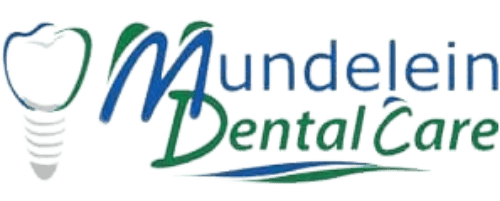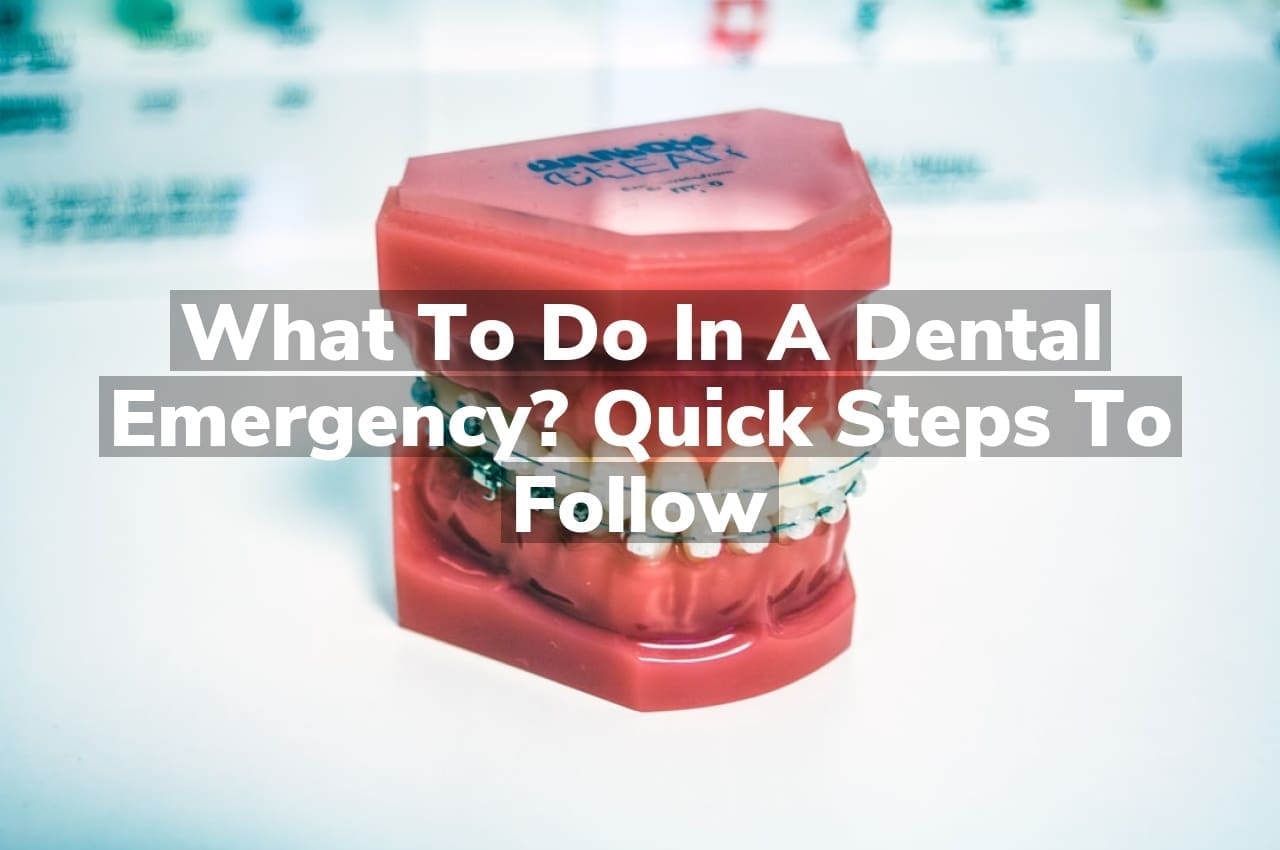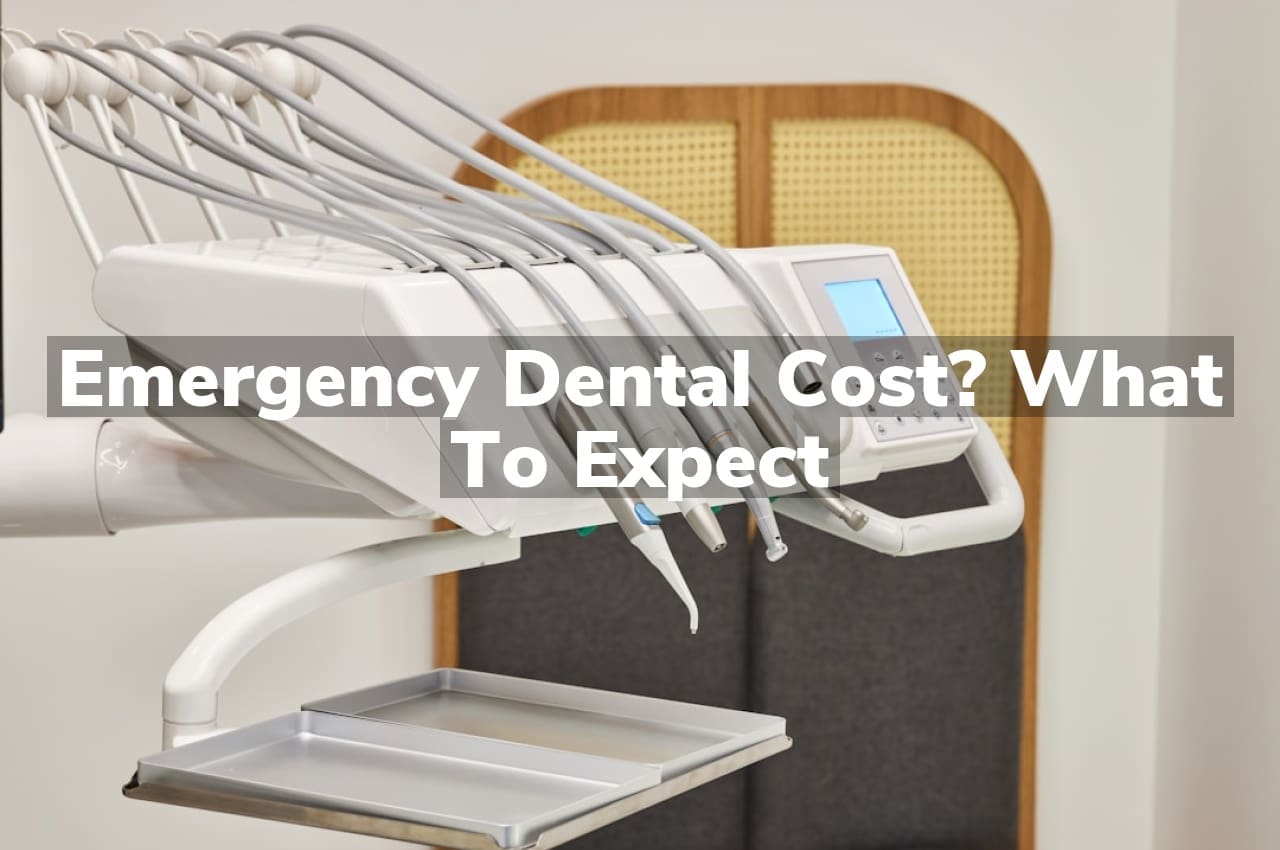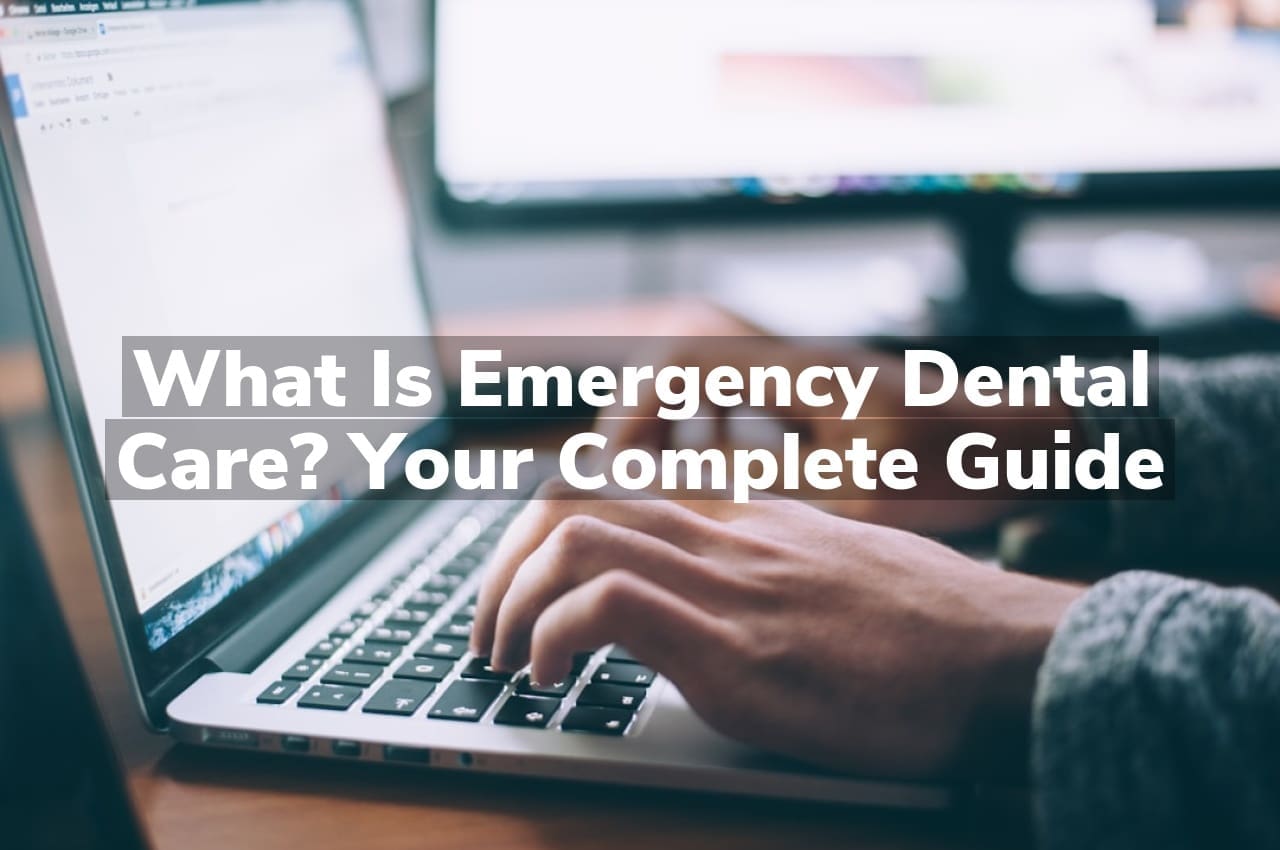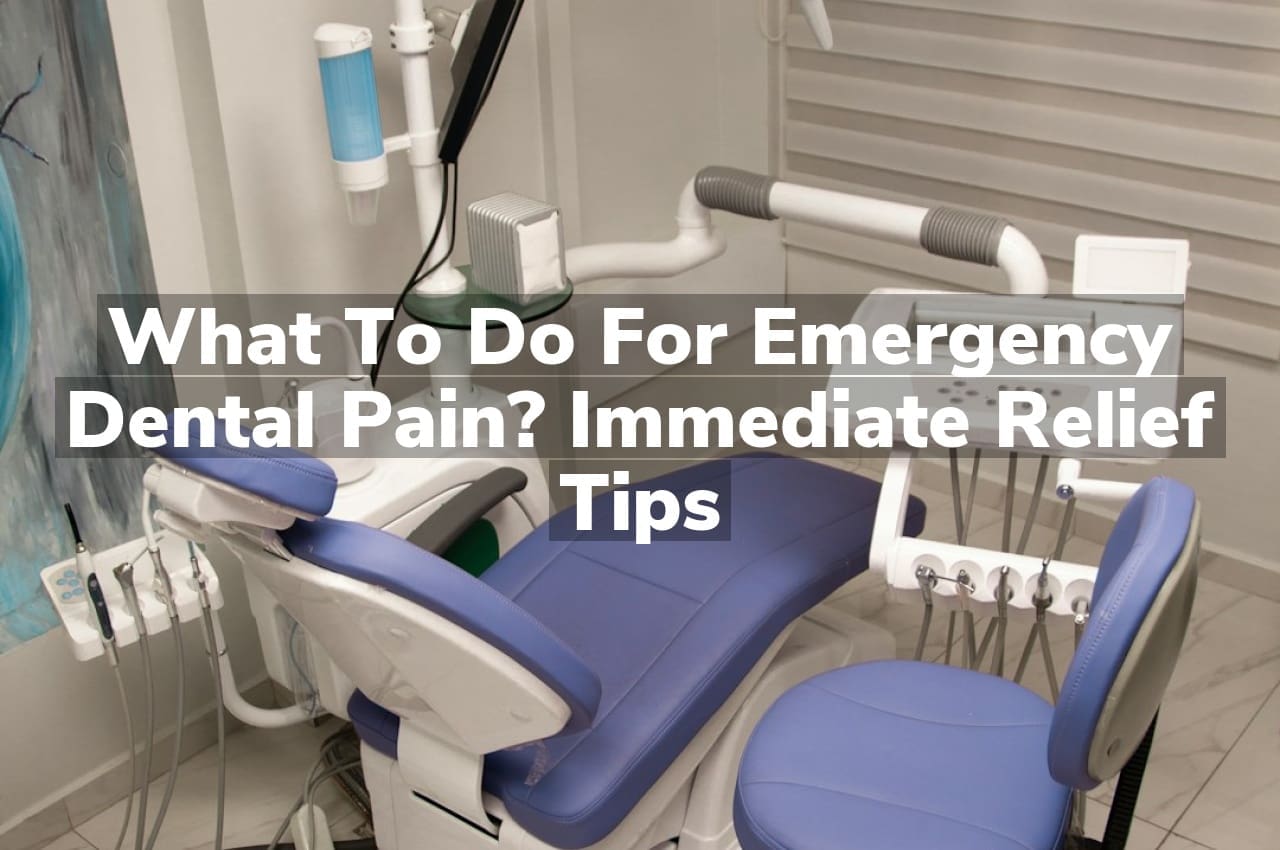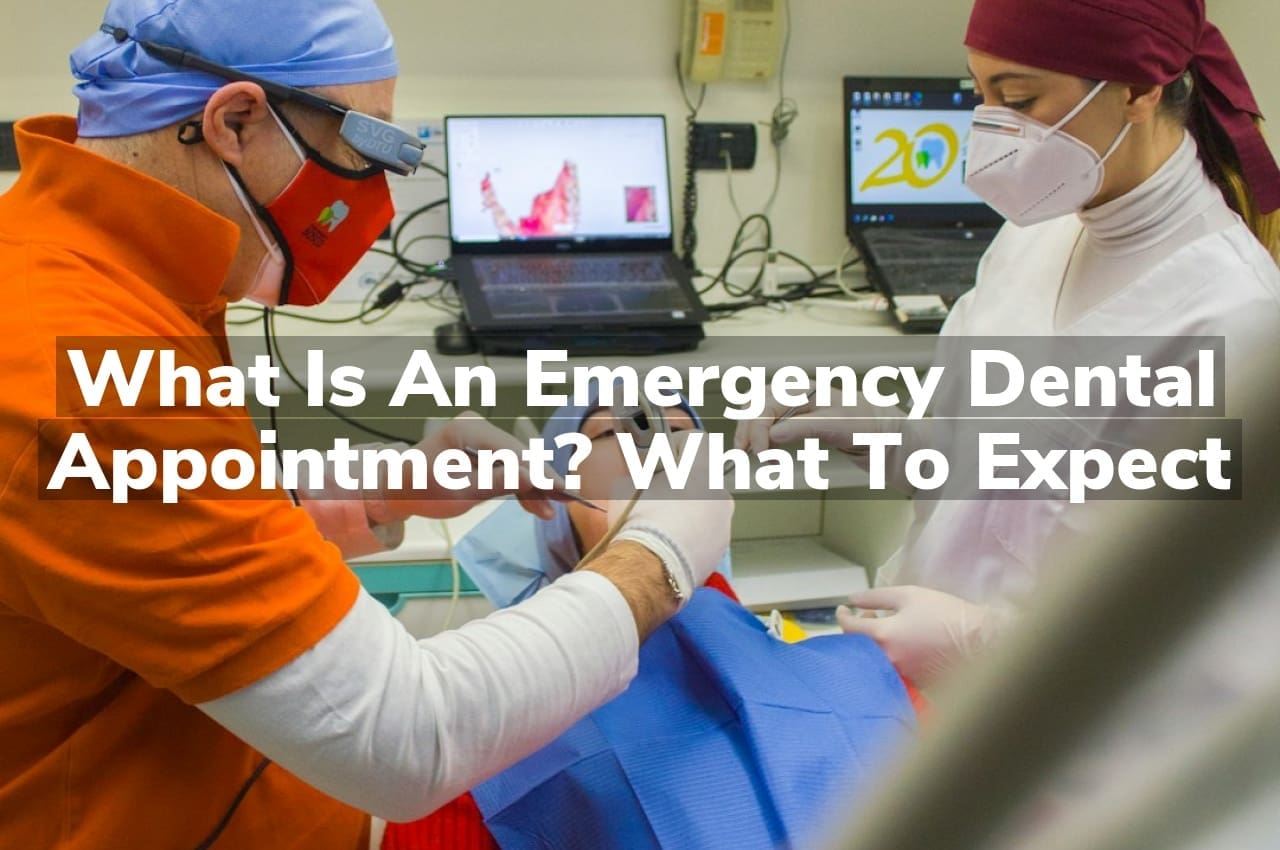What should you do in a dental emergency? When faced with a dental emergency, it’s crucial to act swiftly and effectively. Understanding the general steps to manage such situations can help mitigate discomfort and prevent further complications.
Identifying a Dental Emergency
Recognizing when you are facing a dental emergency can be crucial for taking the right steps to preserve your oral health. Common signs of a dental emergency include severe pain, bleeding that doesn’t stop, loose or knocked-out teeth, and infections such as swelling or knots in your gums. If you experience any of these symptoms, it’s important to seek immediate dental care to prevent further complications or permanent damage.
Understanding the potential costs involved in emergency dental care is also essential. For more detailed information on what you might expect to pay, visit our page on Emergency Dental Cost? What to Expect. This resource can help you prepare financially for the urgent care you need during a dental emergency.
Immediate Actions During Dental Accidents
In the event of a dental emergency, understanding the general nature of immediate actions can be crucial. Dental emergencies can vary widely, from knocked-out teeth to severe toothaches or injuries to the gums. Each scenario demands a different level of awareness and response. Generally, the severity of dental accidents can escalate quickly, making it important to acknowledge the situation without delay.
Recognizing when a situation qualifies as a dental emergency is the first step in managing the incident effectively. This involves observing and understanding the signs of dental distress and how they might impact one’s overall health. For more detailed information on handling such situations, consider visiting Quick Dental Emergency Care Mundelein.
Handling Knocked-Out Teeth
In the event of a dental emergency involving knocked-out teeth, it’s crucial to understand the general steps that should be followed. Recognizing the right procedures can significantly impact the outcome. When a tooth is knocked out, the type of response given can affect the situation, and being aware of these general responses is essential during any dental emergency.
Managing Cracked or Broken Teeth
In the event of a dental emergency involving cracked or broken teeth, it’s crucial to understand the general steps one should follow. Recognizing the severity of the damage can vary, and each situation may require a different level of attention. It’s important to stay calm and avoid further stress on the affected area. For more detailed information on handling such dental emergencies, consider consulting with a professional like a Mundelein Dentist.
Dealing with Toothaches
In the event of a dental emergency involving a toothache, understanding the general nature of toothaches can be crucial. A toothache typically signals an issue that may need attention, and its impact can vary widely among individuals. Recognizing a toothache as a potential dental emergency is an important step in managing your overall dental health.
Responding to Lost Fillings or Crowns
In the event of a dental emergency involving lost fillings or crowns, it’s crucial to take immediate and appropriate action to prevent further damage or discomfort. First, remove any loose pieces from your mouth to avoid swallowing them. If possible, save the crown or filling and bring it to your dentist. To alleviate pain, apply clove oil to the sensitive area using a cotton swab. It’s also advisable to cover the exposed tooth with dental cement, which can be found at most pharmacies, to protect it until you can see a professional. Avoid chewing on the affected side of your mouth to prevent further damage. Contact your dentist as soon as possible to schedule a repair. Proper handling of lost fillings or crowns can significantly influence the outcome of this dental emergency.
What to Do with Object Stuck
In the event of a dental emergency involving an object stuck between your teeth, it’s crucial to handle the situation with care. First, do not use sharp instruments like pins or needles as they can cause more harm. Instead, gently try to remove the object with dental floss, using a back-and-forth motion to ease it out without damaging your gums. If the object remains lodged, it’s important to contact your dentist immediately. Avoid using force or pressure, which could exacerbate the issue, and seek professional help to safely resolve the situation.
Addressing Tissue Injuries in Mouth
When dealing with toothaches during a dental emergency, it’s crucial to act swiftly and effectively. First, rinse your mouth with warm water to clean the area and use cold compresses on your face to reduce swelling. If possible, take over-the-counter pain relievers to alleviate discomfort but avoid placing any medication directly onto the gums or affected tooth as this could cause further irritation. Contact your dentist immediately for professional advice and to arrange an urgent appointment. Remember, handling toothaches promptly can prevent further complications and ensure faster recovery in any dental emergency.
When to Seek Professional Help
In any dental emergency, knowing when to seek professional help is crucial. Immediate action can prevent further complications and alleviate severe pain. If you experience persistent bleeding, severe pain, or a knocked-out tooth, it’s essential to contact your dentist right away. Similarly, signs of infection, such as swelling, pus, or fever, require urgent care to avoid more serious health issues. Always prioritize seeing a dental professional if you’re unsure about the severity of your condition to ensure the best outcome for your dental health.
Conclusion
In any dental emergency, acting swiftly is crucial; for immediate assistance, call 847-566-5560 or read our reviews on Google Maps.
